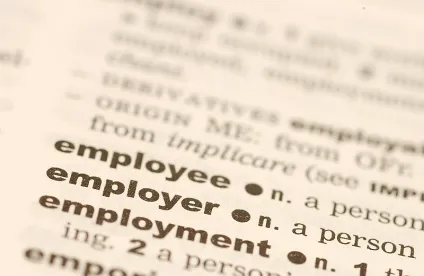Denying an employer’s motion to compel individual arbitration of a wage and hour class action, a California federal court ruled that the employer’s dispute resolution program violated its employees’ right to engage in concerted action under the National Labor Relations Act (“NLRA”). Totten v. Kellogg Brown & Root, LLC. Notably, this ruling departs from the established trend of federal courts declining to follow the precedent set in In re D.R. Horton, Inc. (“Horton I”) and has significant implications for employers contemplating whether to remove a class action involving the enforcement of arbitration agreements to federal court.
Kellogg Brown & Root LLC’s (“KBR”) hired David Totten (“Totten”) in 2012. During his new hire orientation, Totten signed an agreement to participate in KBR’s Dispute Resolution Program (“DRP”) as a condition of his employment. The DRP required employees to arbitrate any claims against KBR that related to, or arose out of, their employment. The DRP also prohibited “KBR, employees and applicants from pursuing claims on a class, collective, or representative basis…” KBR terminated Totten’s employment in June 2014. Approximately one month later, Totten filed a class action against KBR for alleged wage and hour violations and unfair business practices.
Under California law, a plaintiff seeking to invalidate an arbitration agreement on the basis of unconscionability must demonstrate it is both procedurally and substantively unconscionable. The court found the DRP was procedurally unconscionable because it was imposed on Totten on a “take it or leave it” basis, as a condition of his employment. The court also noted that KBR purportedly never provided him with a copy of the American Arbitration Association or Judicial Arbitration and Mediation Services rules referenced in the DRP.
Next, the court examined whether the DRP’s class action waiver violated Section 7 of the NLRA, which provides that “[e]mployees shall have the right to . . . engage in . . . concerted activities for the purpose of collective bargaining or other mutual aid or protection.” Further, it is an unfair labor practice for employers to interfere with employees’ right to exercise their Section 7 rights. Noting its disagreement with the Fifth Circuit’s decision to overrule Horton I, the court held that employees’ right to engage in concerted litigation activity as a means of improving workplace conditions is a core substantive right that employers cannot require employees to waive. Accordingly, the court held that the DRP was invalid, as it interfered with employees’ ability to exercise their substantive Section 7 rights.
Undoubtedly, opponents of class action waivers will cite this decision in support of their argument that a given waiver violates their client’s NLRA Section 7 rights. Accordingly, employers should think twice when deciding whether to remove a class action involving the enforcement of arbitration agreements to federal court.





 />i
/>i

